
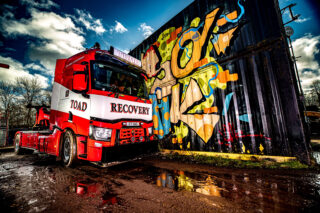
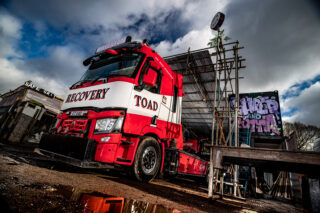
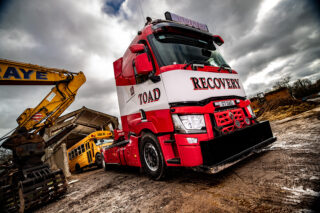
TOAD TOWING AND ENGINEERING OWNER LEE BRIGGS HAS ENGINEERED HIS OWN RENAULT RANGE T 4x2 RECOVERY VEHICLE TO MEET SOME VERY PARTICULAR REQUIREMENTS, AS ON SCENE FINDS OUT
Creating a successful recovery business is always fraught with difficulty. Getting started usually involves going into debt in some way, and always requires careful cultivation of a client base and time spent working hard to build up a reputation for competence, reliability and fast response.
Some build their businesses with expansion, acquiring more equipment, staff and clients as soon as they possibly can. And this can work well, if luck and the prevailing economic conditions permit. But it’s all too easy to overstretch yourself financially or operationally and find yourself chasing work just to generate cashflow – and that can be risky, particularly if the marketplace starts to tighten up. The other approach, of course, is to start more modestly, find a niche sector of the market that is not immediately apparent to others, use finance only when necessary, buy your equipment sensibly, and take on work on your own terms.
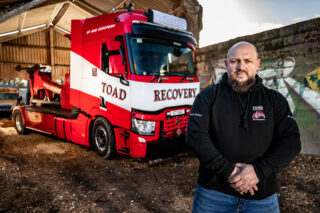
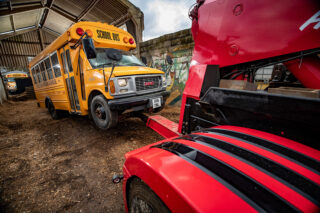
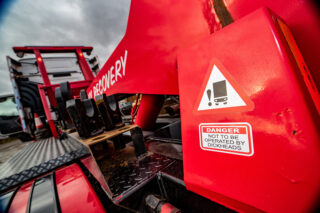
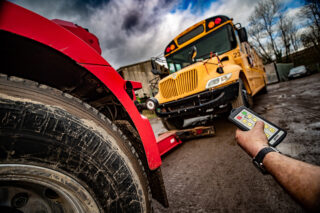
STARTING OUT 42 YEARS AGO, INVERNESS-BASED ROSS’S GARAGE HAS A RICH HERITAGE IN VEHICLE RECOVERY AND REPAIRS AND NOW SERVES ONE OF THE LARGEST AREAS IN THE HIGHLANDS OF SCOTLAND. ON SCENE CATCHES UP WITH DIRECTOR MICHAEL ANDERSON.
With two generations working side by side to drive the business forward, it’s safe to say that family is the backbone of Ross’s Garage. The company was started more than four decades ago when founder Malcolm Ross was instinctively pulled into the recovery sector via his father’s work as a truck driver.
“My dad Malcolm initially started a business with my mum Alisha Anderson called Ross Car Spares,” explains director Michael Anderson. “Although the industry runs through his blood, you could say that Ross’s Garage started by accident after Dad received a call from the local police asking to use his truck and crane to rescue a damaged vehicle. After that, his help was needed more regularly and, as he had a recovery background as an apprentice, the business just grew from there.”
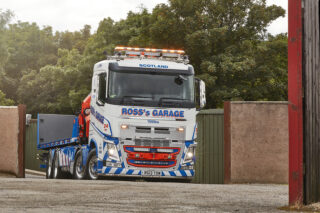
With 132 pages of first-class recovery content, what more could you wish for? Click the appropriate link below to purchase your annual subscription, or individual copy.
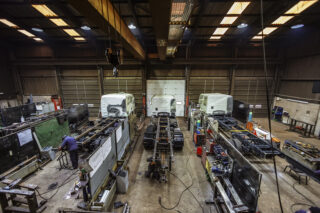
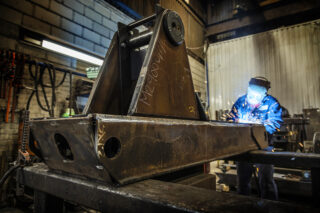
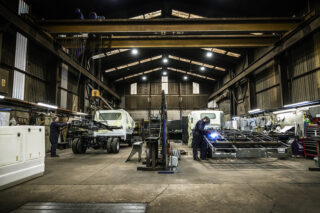
ON SCENE JOINS RECOVERY EQUIPMENT LEGEND ROGER DYSON TO FIND OUT WHAT MADE HIM GIVE UP RUNNING HIS OWN RECOVERY VEHICLES TO BUILD THEM FOR OTHER PEOPLE, AND HOW HIS OPERATION HAS EVOLVED FROM PUTTING BODIES AND EQUIPMENT ONTO CUSTOMERS’ CHASSIS TO SUPPLYING AN ENTIRE VEHICLE PACKAGE
One of the best known and most respected names in the recovery business has to be Worcestershire-based Roger Dyson. Roger has over 50 years’ experience in the industry, recently winning a number of awards for his contributions to the recovery sector.
He started initially as an operator, before quickly moving into the design, development and building of all types of recovery equipment and bodywork. And since then, the operation has expanded into a group of companies with interrelated activities and product lines. But although it has come a long way from its humble beginnings, its eponymous founder is still very much in charge and leading from the front.
Roger still has enormous enthusiasm for the industry, is in constant touch with all aspects of the operation and takes great pride in maintaining close relationships with his extremely wide customer base.
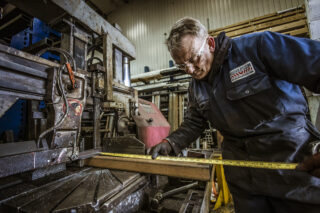
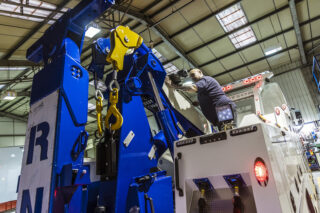
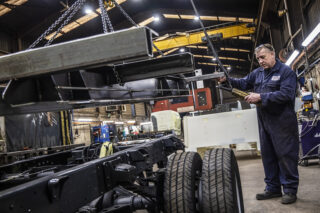
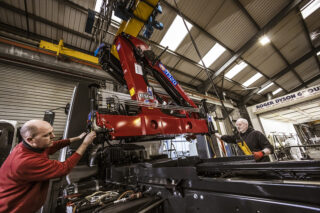
DIBDALE AUTOS’ PETERBILT 357 IS CERTAINLY AN EYE-CATCHING FLAGSHIP FOR A FAMILY-OWNED REPAIR AND RECOVERY FIRM IN THE WEST MIDLANDS BUT MUCH OF THE HARD WORK AT THIS GROWING OPERATION IS CARRIED OUT BY VEHICLES WITH A LITTLE LESS CHROME ON THEM, AS ON SCENE FINDS OUT
Every heavy recovery fleet needs a flagship, and Dibdale Autos has got one it can be proud of. Finished in bright yellow and sporting plenty of shiny chrome and aluminium, its Peterbilt 357 6×4 turns heads every time it ventures out of the firm’s yard.
The truck still has to earn its keep though, stresses Tom Hipkiss, who runs the Dudley, West Midlands-based family-owned business with his brother Richard. “It’s certainly not kept as a show truck,” he says. “Although it’s not as user-friendly as the DAF CFs we also operate, it was my childhood dream to have this kind of vehicle. I always wanted one.”
Although it is several years old now, the Peterbilt is still more than capable of tackling a hard day’s work with its NRC 9430 rotator. Originally shipped from the USA by Roger Dyson after covering 80,000 miles from new, it was acquired by Dibdale from a well-known recovery group.
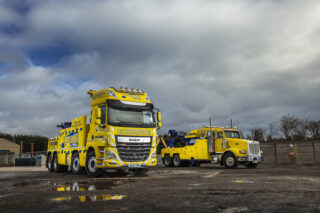
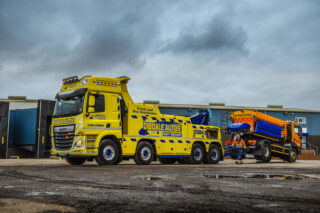
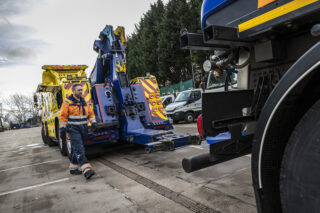
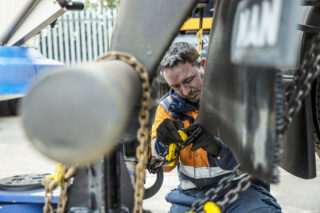
With 132 pages of first-class recovery content, what more could you wish for? Click the appropriate link below to purchase your annual subscription, or individual copy.
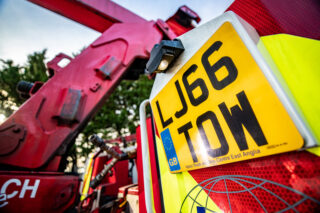
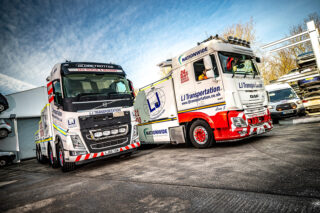
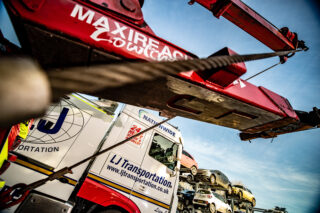
SINCE TAKING ON AN OPERATIONS MANAGER WITH EXTENSIVE EXPERIENCE IN HEAVY VEHICLE RECOVERY, LJ TRANSPORTATION HAS BRANCHED OUT WELL BEYOND ITS INITIAL LIGHT VEHICLE ACTIVITIES. ON SCENE TRACES THE ESSEX-BASED FIRM’S IMPRESSIVE DEVELOPMENT.
Essex is not the biggest English county, ranking only eleventh in terms of its area, but its position on the edge of London and out to the east coast and Thames estuary inevitably means that roads through the county are busy, not least because they include parts of the M25 and the M11. That represents a lot of potential work for recovery operators – a fact that wasn’t lost on Mick Jennings when he set up LJ Transportation in 2009.
Originally, the business was focused on light vehicle recovery, including work for the recovery clubs. But while that is still a substantial part of the business, the company expanded its activities around seven years ago to include heavy vehicle recovery too.
Soon afterwards, Mark Armitage joined the firm with an extensive background in heavy vehicle recovery and training across London, Kent and Essex. He had got to know Mick and found himself looking for a job just as LJ Transportation was expanding its activities.
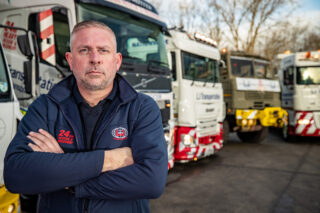
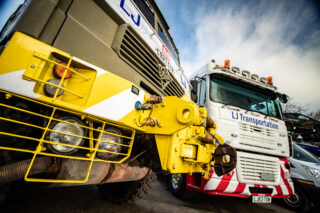
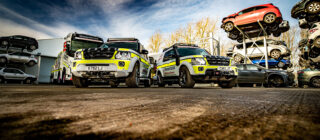
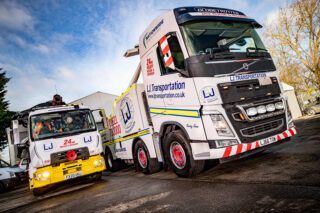
ON SCENE’S UNDERCOVER RECOVERY OPERATOR RON SEEN CONSIDERS THE ROLE OF HIGHWAYS AGENCY TRAFFIC OFFICERS AND WONDERS WHY WE CAN’T RETURN TO THE GOOD OLD DAYS WHEN THE POLICE PATROLLED THE ROADS
Like them or loathe them, Highways Agency Traffic Officers (TOs) first started to patrol the motorways in 2005/2006 as the police relinquished their patrols. The West Midlands was one of the first areas to use TOs, but all of the country followed over time.
TOs were brought in to free up police officers to do more important jobs, like solving crime. They were recruited from all walks of life, however, and the role of patrolling roads in a uniform with liveried motorway patrol vehicles attracted a somewhat varied workforce.
Admittedly, the TOs were given training by Highways Agency staff, some of whom were ex-police but the majority of whom were themselves from outside the motor industry. So it was really a case of the blind leading the blind – and take it from me, we’ve certainly seen this first-hand!
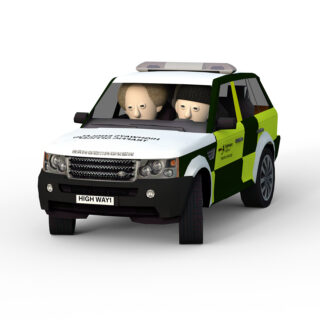
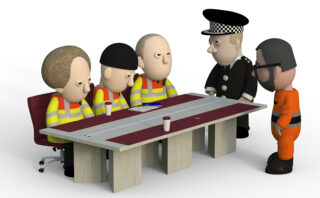
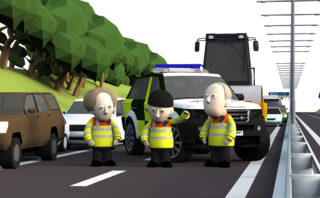
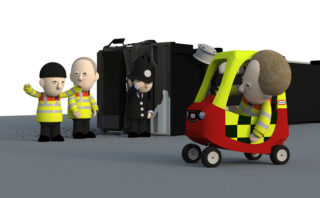
With 132 pages of first-class recovery content, what more could you wish for? Click the appropriate link below to purchase your annual subscription, or individual copy.
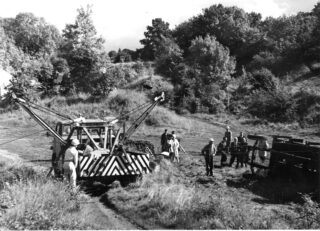
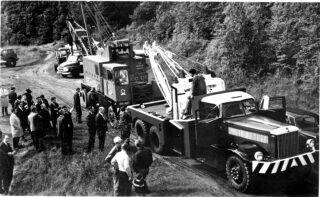
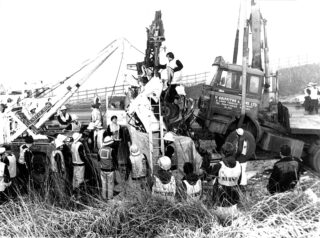
IN THE SECOND OF FIVE ARTICLES ABOUT RECOVERY LEGEND BILL JACKSON, BOB BEECH LOOKS AT THE RISE AND FALL OF DIAL HOLMES AND THE SUBSEQUENT CREATION OF WRECKERS INTERNATIONAL.
In the first part of our series on the life and times of the late Bill Jackson (see last issue), we highlighted the early years of Bill’s long career in the motor industry, taking the story up to the point at which he became the importer for American-built Ernest Holmes recovery equipment outside of North America.
Bill went on to become one of the most influential people in the recovery sector on both sides of the Atlantic, not only importing and building recovery equipment but developing and introducing air bag recovery, and providing training courses and publications about vehicle recovery, as well as encouraging close working with fire brigades and other authorities.
Bill had formed a new company – Dial Holmes, based at Caxton Hill, Hertfordshire – for the purpose of importing and selling the Holmes equipment, with franchised dealers in several European countries. The new base was also the site of another Jackson family company, Dial Mec, a bodyshop and plant hire firm.
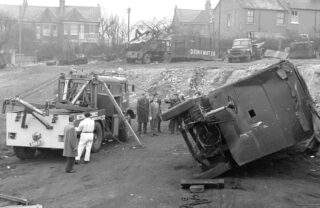
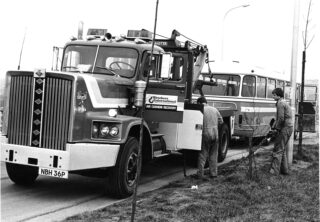
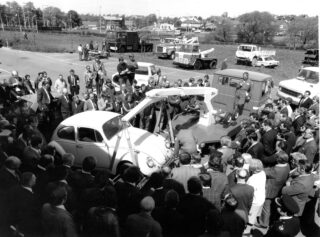
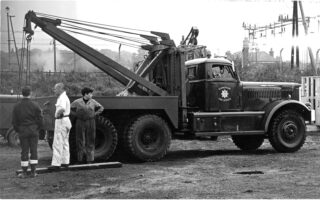
ON SCENE VISITS SOUTH-EAST BASED LANTERN RECOVERY SPECIALISTS TO SEE WHAT LIFE IN THE BUSINESS THERE IS LIKE FOR THREE OF ITS KEY STAFF MEMBERS.
Operating a large specialist recovery operation is a difficult task in any part of the UK, but when it’s just one of several specialist divisions within the same group providing a wide range of interlinked services, things become even more complicated. And if the operation is also based in the south-east, with a large proportion of the vehicle breakdown and recovery operations taking place in and around Greater London, then things can become a real challenge, given that much of the road network can be brought to a standstill at a moment’s notice.
Lantern Recovery Specialists, which has nearly six decades of experience and operates over 150 vehicles, does just this and still manages to provide nationwide coverage, however, facilitated by out-based recovery vehicles and a network of trusted agents. Covering some of the busiest roads in the world creates tremendous demand for its services. Its busiest single day saw the company dealing with some 550-600 jobs, though a normal day will be slightly less than half of that – but a sudden change in the weather or just one single major incident can obviously change this in an instant.
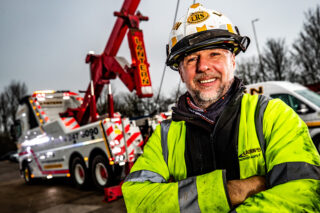
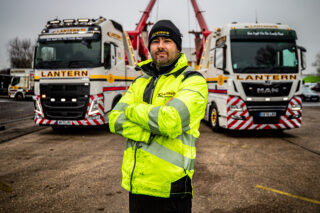
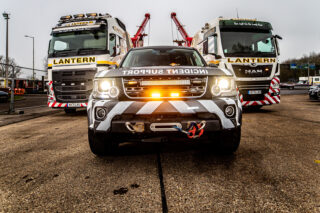
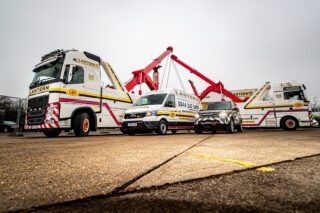
With 132 pages of first-class recovery content, what more could you wish for? Click the appropriate link below to purchase your annual subscription, or individual copy.